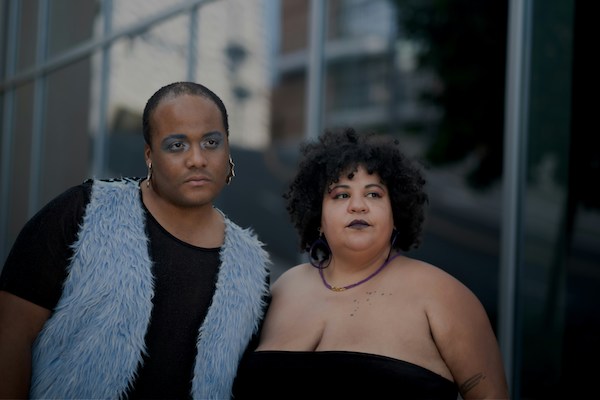Trigger warning for mentions of suicidality and mental distress. If you are in crisis, call the Trans Lifeline at 877-565-8860.
With anti-trans rhetoric at a fever pitch with the election days away, trans people are experiencing more anxiety, depression, and fear as a result. For a community already experiencing disproportionate mental health distress and politically under attack for years, the end of the election season can’t come soon enough—but a Trump presidency could be even worse. Finding support and community with each other is key.
This year trans rights are a wedge issue on a national stage and Trump and Republican candidates around the country have spent tens of millions of dollars on anti-trans political ads. (An October 24 Data for Progress survey showed that the majority of likely voters are turned off by these ads.) This comes in the context of a year when over 500 anti-transgender bills were introduced to state legislatures.
Nearing a breaking point
The mental health of 95% of trans Americans is affected by the political discourse around the election, according to a survey conducted by FOLX Health. 92% say it’s caused them to feel anxious, two thirds say they are experiencing frequent mental distress from it, and 84% say it’s created fear for their family’s safety.
Fears over the results of the election has led over three quarters of trans people to take protective measures like stockpiling hormones or expediting gender-affirming care measures, getting or renewing passports, updating name and gender marker documents, or getting legally married.
The political climate was already having a serious impact on trans mental health before election season. Due to state-level anti-transgender bills this year, a disturbing part of daily life for trans people in fear of—or already—losing their access to healthcare, public restrooms, sports, and more. One in five trans people has lost access to healthcare in the past year as a result of anti-trans laws and 58% have considered moving to another state because of those laws. A recent study in the journal Nature shows that anti-trans state laws have increased suicide attempts among transgender and nonbinary youth by as much as 72%.
At the same time, over half of trans people report not being able to access mental health care, often due to cost or not being able to find an inclusive provider.
A community united
“I am fearful of another Trump presidency. I feel my life and the lives of others are at stake. I wonder daily if I need to prepare to flee or hide,” said one respondent to the FOLX survey. “Many people are seeking more community networks for safety reasons in case things become horrific in the wake of another Trump presidency or retaliation from MAGA at a Trump loss.”
Like the respondent says, trans people are seeking out community as a way to cope. LGBTQ+ community centers served over 3 million people in 2023—90% of centers offered specific programming for transgender people and 55% offered mental health services, according to a recent report from CenterLink. For 29% of centers, the majority of people served were transgender. Support groups organized through social media or local nonprofits are helping trans people help each other.
Jamison Green is an author, educator, and former president of the World Professional Association for Transgender Health. Based on his studies of trans history, he says this level of political stress is unprecedented.
“This has never happened before to this extent. Trans people are the new attack point since same-sex marriage was won,” Green tells Tagg, noting that the first round of “bathroom bills” were launched in 2016 to deflect from the right’s failure to prevent marriage equality. “They demonize us and make us into a huge threat in order to get people to throw money at them.”
“It breaks my heart to see so many innocent people being on the receiving end of senseless brutality and mental torture. The level of ignorance, prejudice, and psychological abuse is extreme and has no place in a civilized society,” he says. “I try very hard to let people know that we are stronger than this hatred and ignorance, and I will not give up trying to educate and make the world safe for all of us.”
Looking Ahead
Ohio-based therapist Lee Tepper, LISW-S, recommends creating an election night safety plan to reduce the chances of crisis. This could include preparing distractions like games to play, songs to dance to, or spicy or sour candy to eat. They say that even trying a coping skill that doesn’t work is time spent on trying something instead of engaging in a harmful way to cope. (Check out Tepper’s whole TikTok series about election anxiety for other advice.)
“There’s going to come a point where it’s not going to work anymore,” Green says of scapegoating trans people. “Although it won’t happen before this election day, it’s got to happen sometime. People will realize trans people are human beings who just want to live their lives in safety, just like they do.”


